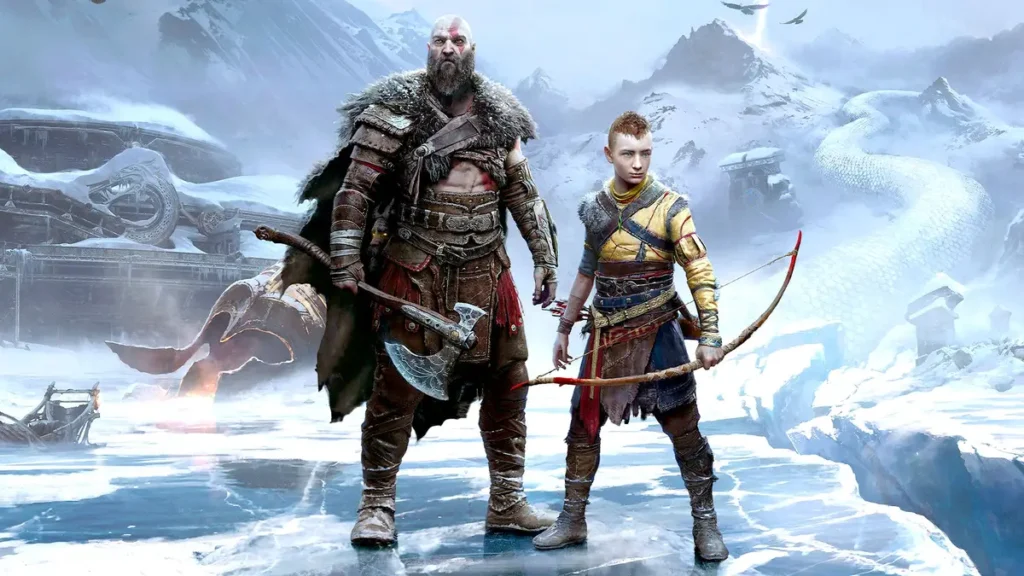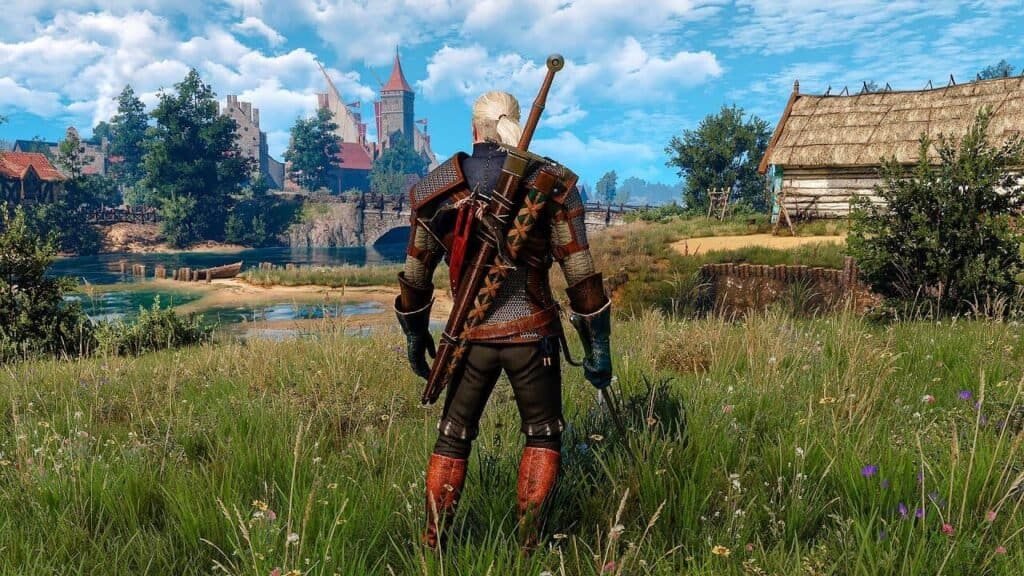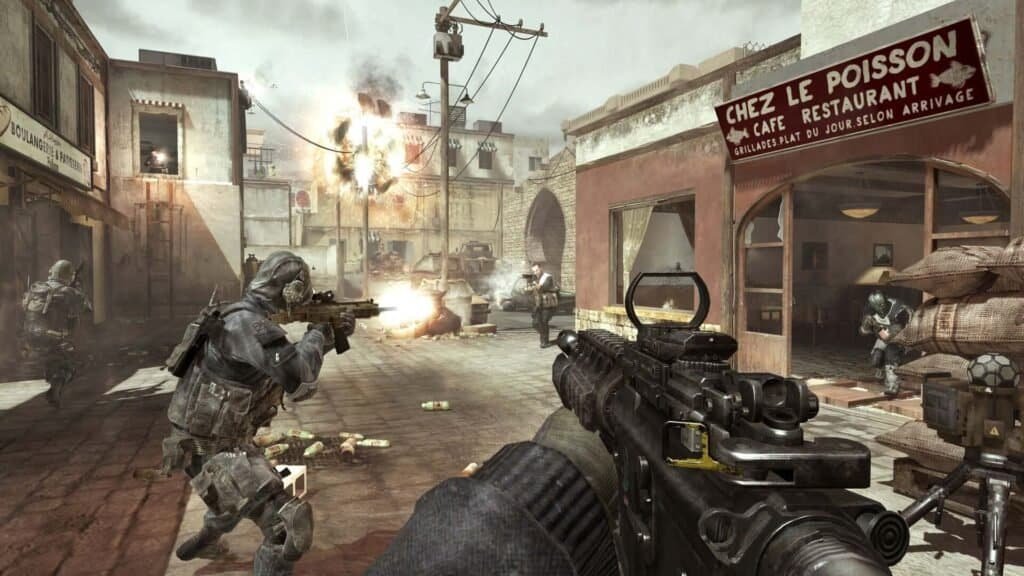The Ultimate Guide to Video Game Genres: What They Are & How They Differ

Video game genres come in all shapes and sizes, fast-paced shooters, relaxing farming simulators, Action RPGs etc… But with so many genres out there, it can get confusing! What’s the difference between an RPG and an action game? How does a roguelike differ from a roguelite? And why do people call some games “cozy”?
This guide breaks down all major game genres, explaining what makes each one unique—with some great examples along the way!
Table Of Contents
1. Action Games

Distinguishing Features: Fast reflexes, real-time combat, and physical challenges. These games emphasize skillful execution, timing, and movement. The player is often required to react quickly to enemies, hazards, or obstacles, making these games thrilling and engaging. They typically test hand-eye coordination and dexterity.
If you love fast reflexes and instant reactions, action games are for you. These games focus on real-time combat, movement, and mechanics that keep you engaged. Subgenres include platformers, fighting games, and hack-and-slash titles.
Sub-genres :
- Hack & Slash: Devil May Cry, Bayonetta, God of War
- Platformers: Super Mario Bros., Hollow Knight, Celeste
- Fighting Games: Street Fighter, Tekken, Mortal Kombat
2. Adventure Games

Distinguishing Features: Story-driven, exploration-heavy, and often puzzle-focused. These games prioritize discovery over fast-paced action. Adventure games immerse players in a narrative, encouraging them to interact with characters, uncover secrets, and solve mysteries.
Unlike action games, adventure games do not require rapid reflexes but instead engage the player’s problem-solving skills and curiosity. Many adventure games are slow-paced, allowing players to absorb the story and world around them.
Sub-genres :
- Classic Adventure: The Legend of Zelda: Breath of the Wild, Shadow of the Colossus
- Point-and-Click: Monkey Island, Grim Fandango, Sam & Max
- Interactive Storytelling: Life is Strange, Telltale’s The Walking Dead, Detroit: Become Human
3. Role-Playing Games (RPGs)

Distinguishing Features: Deep character progression, immersive storytelling, and decision-making elements. These games allow players to take on the role of a character and develop their abilities over time through experience points, quests, and choices.
RPGs focus on character progression, deep storytelling, and player choice. You usually gain experience points (XP), level up, and make decisions that affect the story. Many RPGs feature turn-based combat, while others are real-time action-oriented. Some RPGs also include vast open worlds to explore, giving players a high degree of freedom.
Sub-genres :
- Western RPGs (WRPGs): The Witcher 3, Skyrim, Cyberpunk 2077
- Japanese RPGs (JRPGs): Final Fantasy, Persona 5, Dragon Quest XI
- Action RPGs: Dark Souls, Diablo, Elden Ring
4. Shooter Games

Distinguishing Features: Precision aiming, fast-paced combat, and weapon-based gameplay. Shooters test a player’s reflexes, accuracy, and tactical awareness.
These games revolve around using firearms or other weapons to engage enemies. They require accuracy, strategy, and sometimes teamwork. Shooters may also feature competitive multiplayer modes, making them a favorite for esports.
Sub-genres :
- First-Person Shooters (FPS): Call of Duty, Doom, Half-Life
- Third-Person Shooters (TPS): Gears of War, Max Payne, The Division
- Battle Royale: Fortnite, Apex Legends, PUBG
5. Strategy Games

Distinguishing Features: Tactical planning, resource management, and long-term decision-making. Unlike action games, strategy games require critical thinking rather than quick reflexes.
Strategy games test your decision-making skills, requiring careful planning and tactical execution. These games often involve managing resources, commanding armies, or overseeing civilizations.
Sub-genres :
- Real-Time Strategy (RTS): StarCraft, Age of Empires, Command & Conquer
- Turn-Based Strategy (TBS): XCOM, Civilization VI, Fire Emblem
- Tower Defense: Plants vs. Zombies, Bloons TD, Defense Grid
6. Simulation & Management Games

Distinguishing Features: Realistic mechanics, resource control, and long-term planning. These games often focus on simulating real-life activities.
These games replicate real-world activities or let you control complex systems like cities, farms, or entire civilizations. They often require strategic planning and offer deep management mechanics.
Sub-genres :
- Life Sim: The Sims, Animal Crossing, BitLife
- City-Building: SimCity, Cities: Skylines, Tropico
- Farming Sim: Stardew Valley, Harvest Moon, Farming Simulator
7. Survival & Horror Games

Distinguishing Features: Resource management, tension, and a sense of vulnerability. These games test a player’s ability to survive in challenging environments.
Survival games test your ability to stay alive, while horror games focus on fear and psychological tension. Many horror games feature limited resources, requiring players to carefully manage items and avoid direct confrontations.
If you are onto Horror genre, I recommend you to check out this blog about phobias in gaming
Sub-genres :
- Survival: Don’t Starve, Rust, ARK: Survival Evolved
- Horror: Resident Evil, Silent Hill, Amnesia: The Dark Descent
- Survival Horror: The Forest, Outlast, Alien: Isolation
8. Cozy Games

Distinguishing Features: Relaxing atmosphere, non-violent gameplay, and stress-free experiences. These games focus on creativity and low-pressure activities.
Cozy games are designed to be enjoyable without requiring fast reactions or complex mechanics. They often feature wholesome themes, delightful art styles, and a relaxed pace.
Check out blog about cozy games, you will definitely find a game that suits you
Sub-genres :
- Life Sim: Stardew Valley, Cozy Grove, Spiritfarer
- Chill Exploration: A Short Hike, Journey, Eastshade
- Relaxing Puzzles: Dorfromantik, Townscaper, ISLANDERS
7. Sports & Racing Games

Distinguishing Features: Competitive, physics-based gameplay that replicates real-world sports or racing mechanics.
Sports games simulate real or fictional sports, while racing games focus on vehicles and track-based competition. These games often emphasize realistic physics, team management, and competitive multiplayer.
Examples:
- Sports Games: FIFA, NBA 2K, Madden NFL
- Extreme Sports: Tony Hawk’s Pro Skater, Skate, SSX
- Racing Games: Gran Turismo, Forza Horizon, Mario Kart
With so many genres, there’s a game for everyone. Whether you love action-packed shooters, deep RPGs, or cozy life sims, gaming has something special for you. Understanding the differences between game genres can help you discover new favorites and appreciate the variety in the gaming world.
What’s your favorite game genre? Let me know in the comments, or simply contact us with your idea!




